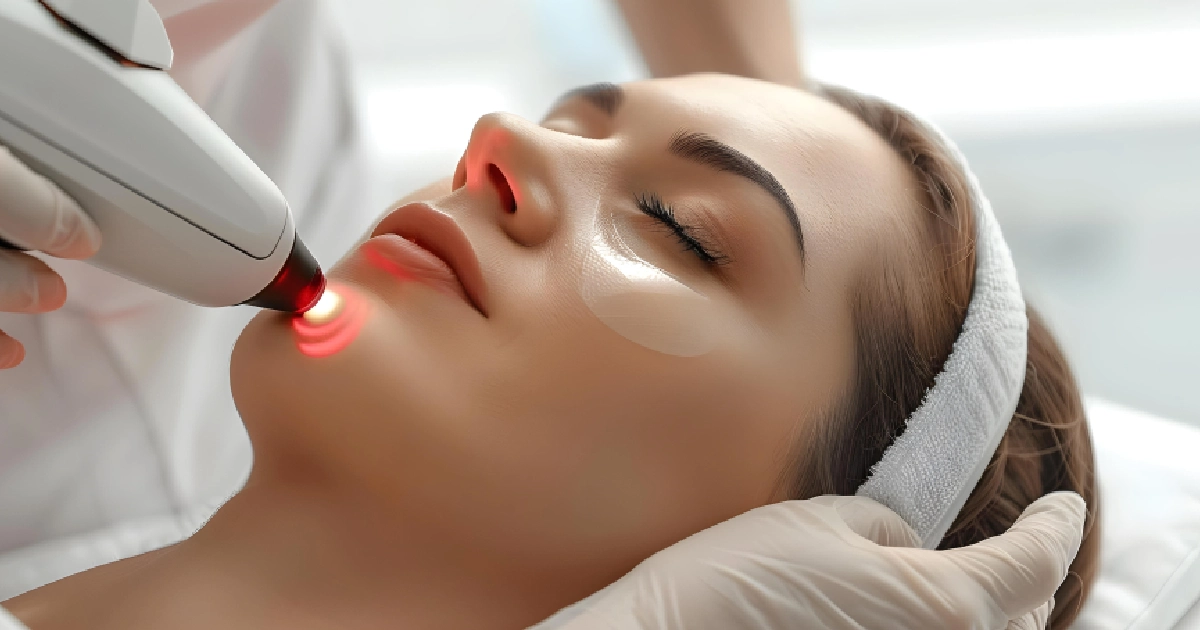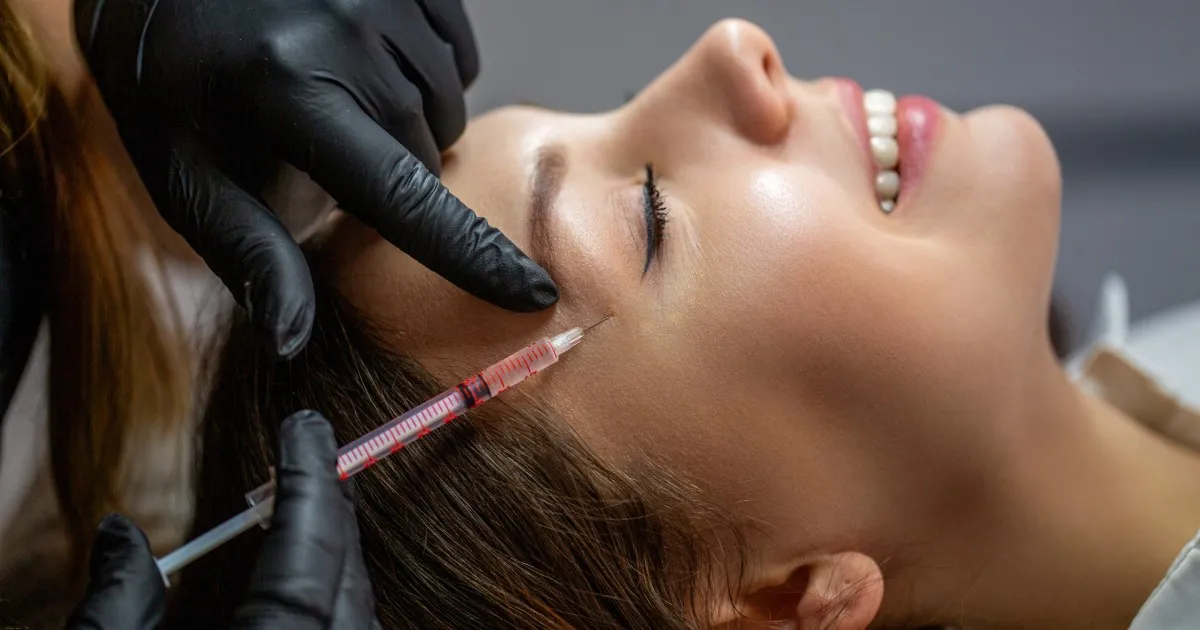Muscle-building peptides have attracted considerable attention for enhancing muscle growth, speeding recovery, and boosting athletic performance. As more people integrate these peptides into their fitness regimes, concerns about the safety of long-term use have surfaced. Secret Aesthetics and Wellness Center offers a unique wellness experience for those exploring these options. We examine what muscle-building peptides are, their advantages, and the scientific research on their extended use.
What Are Muscle-building Peptides?
Muscle-building peptides have revolutionized the fitness and bodybuilding industry, offering an innovative approach to muscle growth and recovery.
- Definition of Muscle-Building Peptides: Muscle-building peptides are short chains of amino acids that act as signaling molecules in the body. They stimulate various physiological processes, including muscle growth and repair. Because peptides are smaller and more easily absorbed, they are highly effective for targeted interventions.
- Common Types of Muscle-Building Peptides: Several peptides are popular for muscle building, each offering unique benefits. GHRP-6 (Growth Hormone hormone-releasing peptide-6) stimulates growth hormone release, promoting muscle growth and fat loss while enhancing recovery by increasing protein synthesis. CJC-1295, known for its long half-life, boosts growth hormone and IGF-1 levels, essential for muscle hypertrophy and recovery. Ipamorelin stimulates growth hormone release without significantly affecting cortisol levels, making it a safer option for long-term use. BPC-157, derived from a protective protein in the stomach, accelerates healing and recovery, making it popular among athletes recovering from injuries.
- Mechanism of Action: Muscle-building peptides mimic the body’s natural growth factors. When administered, they bind to specific receptors, triggering growth hormone release from the pituitary gland. This hormone then stimulates the production of IGF-1 in the liver, promoting muscle cell proliferation and differentiation. Additionally, peptides like BPC-157 enhance the repair of muscle tissues by increasing blood flow and reducing inflammation.
- Administration and Dosage: Muscle-building peptides are typically administered through subcutaneous injections. The frequency and dosage depend on the specific peptide and individual goals. Following a healthcare provider’s guidance is crucial to ensure safe and effective use.
- Legal and Ethical Considerations: Muscle-building peptides are regulated in many countries. Legal and health issues can be avoided by sourcing these compounds from reputable providers and using them under medical supervision.
Benefits of Muscle-Building Peptides
Muscle-building peptides have transformed the fitness landscape, offering a range of benefits for bodybuilders, fitness enthusiasts, and athletes.
- Enhanced Muscle Growth: Muscle-building peptides, such as GHRP-6 and CJC-1295, stimulate the release of growth hormones and IGF-1, which are key players in muscle hypertrophy. These peptides promote the proliferation and differentiation of muscle cells, significantly increasing muscle mass and strength. Users often report noticeable muscle gains within weeks of starting peptide therapy.
- Improved Recovery: One of the standout benefits of muscle-building peptides is their ability to accelerate recovery. Peptides like BPC-157 and TB-500 enhance tissue repair by increasing blood flow and reducing inflammation. Its accelerated healing process allows athletes to train harder and more frequently without the extended downtime needed for muscle recovery.
- Increased Endurance and Stamina: Muscle-building peptides also boost endurance by enhancing mitochondrial function. Mitochondria, the powerhouses of cells, play a critical role in energy production. Peptides like Ipamorelin increase mitochondrial efficiency, improving stamina and prolonged physical performance during workouts and competitions.
- Fat Loss and Lean Muscle Preservation: Peptides such as CJC-1295 promote muscle growth and aid in fat metabolism. They also release growth hormones, which enhance lipolysis (fat breakdown) and reduce body fat. This dual action helps users achieve a lean physique while preserving and building lean muscle mass.
- Joint and Tissue Repair: Athletes often face joint and tissue injuries that can hinder their progress. Muscle-building peptides like BPC-157 and TB-500 are known for their regenerative properties. These peptides promote the healing of tendons, ligaments, and other connective tissues, reducing injury risk and enhancing overall joint health.
- Enhanced Protein Synthesis: Muscle-building peptides improve protein synthesis and are vital for muscle growth and repair. By increasing the rate at which proteins are synthesized in the body, these peptides ensure that muscles receive the crucial nutrients to recover and grow effectively. Enhanced protein synthesis translates to faster muscle recovery and growth, helping users achieve their fitness goals more efficiently.
- Better Sleep and Mood Regulation: Growth hormone peptides like GHRP-6 positively impact sleep and mood. Improved sleep quality aids in recovery, while balanced mood regulation enhances overall well-being.
- Boosted Immune Function: Muscle-building peptides can also enhance immune function. Peptides like TB-500 have been shown to boost the immune system, assist the body in fighting off infections, and recover quickly from illnesses.
- Skin and Hair Health: The regenerative properties of muscle-building peptides extend to skin and hair health. Peptides like GHRP-6 stimulate increased collagen production, improving skin elasticity and reducing signs of aging.
Scientific Research and Studies on Muscle-Building Peptides
Muscle-building peptides have become a focus in the fitness industry thanks to their potential to enhance muscle growth and recovery.
- Growth Hormone-Releasing Peptides (GHRPs): Research has extensively explored GHRPs, such as GHRP-6 and Ipamorelin. These studies highlight their ability to stimulate the release of growth hormone, which is vital for muscle hypertrophy and repair. A study published in the Journal of Clinical Endocrinology & Metabolism found that GHRP-6 significantly increased growth hormone levels, enhancing muscle growth and fat loss in subjects.
- CJC-1295 and Muscle Hypertrophy: CJC-1295, a long-acting growth hormone-releasing hormone (GHRH), has been the subject of various clinical trials. Research indicates that CJC-1295 effectively increases growth hormone and IGF-1 levels, both vital for muscle growth and repair. A study in the American Journal of Physiology-Endocrinology and Metabolism reported that CJC-1295 administration led to a sustained increase in IGF-1, promoting muscle hypertrophy and improved physical performance.
- Ipamorelin and Recovery: Ipamorelin is another peptide that has garnered attention for its potent growth hormone-releasing capabilities. Unlike other GHRPs, Ipamorelin does not significantly affect cortisol or prolactin levels, making it a safer option for long-term use.
- BPC-157 and Tissue Healing: BPC-157 is a peptide derived from a protective protein in the stomach, known for its regenerative properties. Research has shown that BPC-157 accelerates the healing of muscles, tendons, and ligaments. A study in the Journal of Orthopaedic Research found that BPC-157 significantly improved the healing of tendon injuries, highlighting its potential benefits for athletes and individuals recovering from musculoskeletal injuries.
- TB-500 and Inflammation Reduction: TB-500, a synthetic thymosin beta-4, has been studied for its anti-inflammatory and healing properties. Research indicates that TB-500 promotes cell migration and new blood vessel formation, which is essential for tissue repair. A study published in the International Journal of Molecular Sciences showed that TB-500 reduced inflammation and enhanced healing in animal models, supporting its use for muscle and joint recovery.
- Safety and Long-Term Use: While the benefits of muscle-building peptides are well-documented, their long-term safety remains a topic of ongoing research. Studies have generally shown that these peptides are safe when used appropriately under medical supervision.
Consult a Professional
Scientific research and studies provide a robust foundation for muscle-building peptides, showcasing their potential to enhance muscle growth, recovery, and overall athletic performance. Are you ready to elevate your fitness routine with muscle-building peptides? Consulting with a professional licensed esthetician will guide you toward the best treatment option.
Takeaway
Muscle-building peptides offer remarkable benefits for enhancing muscle growth, recovery, and overall performance. At Secret Aesthetics and Wellness Center, we provide expert guidance to ensure safe and effective results. Contact us today or book an appointment to start your journey toward achieving your fitness goals.



